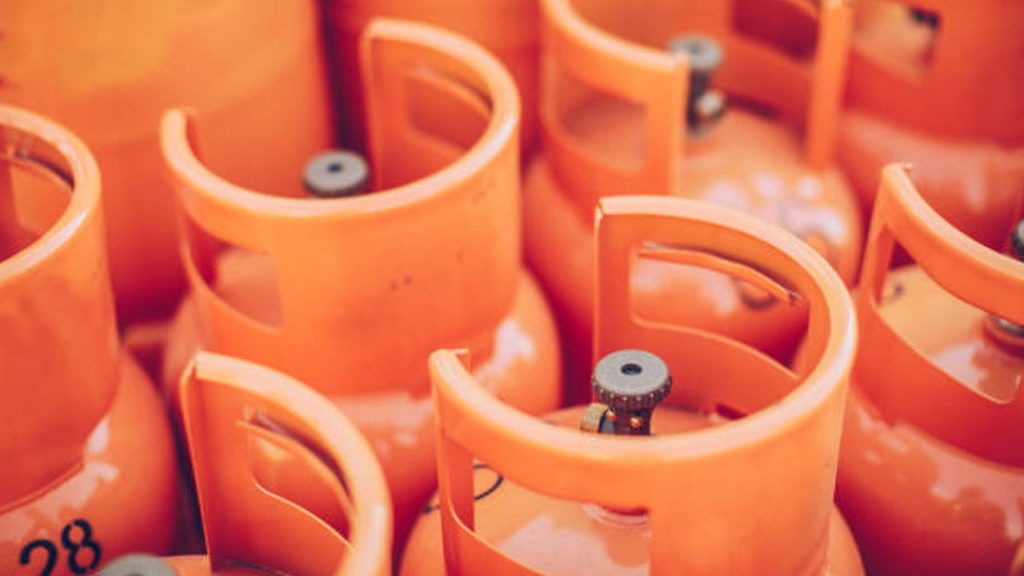Unless Nigeria domesticates development of gas resources, especially with a N250 billion-intervention fund released by the Central Bank of Nigeria (CBN) in partnership with the Ministry of Petroleum Resources, government’s National Gas Expansion Programme (NGEP) may remain elusive, stakeholders have said.
While the price of Liquefied petroleum gas (LPG) has doubled and an autogas policy of the Federal government is struggling to thrive, the government recently launched the NGEP backed by the N250 billion fund to further deepen the domestic gas market.
Currently, a kilogramme of cooking gas, which traded for about N300 earlier this year now sells for over N500 across the country on the backdrop of vulnerable economic indexes, especially the continuous weakness of the naira and the increasing price of natural and refined gas at the international market.
In May, Naira was devalued from N379/$1 to N410.25/$1. As of yesterday, the Naira exchanged for N521/$1 at the parallel market, where most Nigerians purchase their foreign exchange. The global price of natural gas has also witnessed over 60 per cent increase, trading close to $4 per Million British Thermal Unit (MMBtu) yesterday.
The Petroleum Products Pricing Regulatory Agency (PPPRA) had earlier disclosed that the current consumption of gas stands at about one million metric tonnes, indicating that a five million consumption target set for this year may wobble.
Indeed, with over 50 per cent of the resources being imported into the country despite huge gas reserves hovering above 206 trillion standard cubic feet, stakeholders believe that domestication could reduce the price, spur investment opportunities, reduce burden on foreign exchange, provide unemployment and strengthen the development of the downstream sector.
Stakeholders had expressed concerns that the number of women who die in the country yearly from biomass may double.
Recall that the African Refiners and Distribution Association (ARDA) and other experts had warned of imminent danger if Africa fails to quickly adopt modern clean cooking energy as over 600,000 Africans, especially Nigerians may die yearly, due to household air pollution like firewood and charcoal.
Executive Director, International Support Network for African Development (ISNAD-Africa), Adedoyin Adeleke stated that if Nigeria continues to import over 70 per cent of gas products, especially LPG without domestication, boosting local utilisation at an affordable rate could be a mirage.
“The importation of LPG inflates the cost of gas in the country making it unaffordable for most Nigerians. Coupled with the increasing cost of living in the country, increasing unemployment, unabated increase in poverty rate; the vast majority of Nigerians will be pushed to resort to fuel wood for cooking hence increasing deforestation in the country,” Adeleke said.
According to him, there is a need for the government to attract, induce and support the private sector for massive investment in gas production in Nigeria.
Adeleke noted that the consequent exclusion of importation associated costs, economies of scale and participation of multiple players would catalyse competition which would crash the price of LPG in the country.
“Local production for local consumption is the way. While it would be good to export, local consumption should be the priority. Farmers do not sell their seeds, Nigeria must not continue to sell out the seeds that could catalyse her much needed development, yet without undermining the sustainability of our environment, conservation of nature, and loss of biodiversity,” he stated.
An energy expert, Charles Majomi noted that unless domesticated, gas prices would continue to increase, saying: “the market is likely to tighten further as uncertainty around finance and investments in fossil fuels projects, brought about by the advance of renewables, is likely to cause a pull back in upstream production.
According to him, the development will lead to firewood being the cheapest alternative, high female mortality and increased deforestation, which will have negative environmental impact in the rural zones and lead to more economic hardship for the Nigerian masses.
Ghana National Petroleum Corporation, Petroleum Commerce Research Chair, University of Cape Coast Oil & Gas Studies, Prof Wunmi Iledare, lauding the intervention fund in the value chain said: “Significant amount of investment is required to translate the reserves to usable form.
“Petroleum production is good for nothing if its development does not improve the quality of life of the people, not just the elite, if sustainable development is to be optimised.”
Special Advisers to the Minister of State for Petroleum Resources on Gas Business Development, Branda Ataga equally expressed the need to domesticate gas development in the country.
Until that happens, Ataga noted that commodities might remain on the high side providing less benefits to the nation’s economy.
To her, there was a need for more Nigerians to invest in developing the sector.

